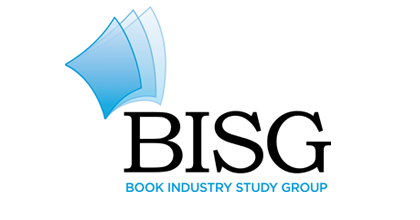
The Book Industry Study Group (BISG) announced today the publication of a new Policy Statement detailing best practices for assigning ISBNs to digital products. Developed over the past 18 months within BISG’s Identification Committee, BISG Policy Statement POL-1101 addresses the critical need to reduce product identification confusion in the market place in order to provide the best possible consumer-level purchasing experience.
In the spring of 2010, BISG’s Identification Committee created a Working Group to research and gather data around the practice of assigning identifiers to digital content throughout the US supply chain. “The specific mandate of the Working Group was to gather a true picture of how the US book supply chain was handling ISBN assignments, and then formulate best practice recommendations based on this pragmatic understanding,” said Angela Bole, BISG’s Deputy Executive Director. “Around 60 unique individuals and 40 unique companies participated in the effort. It was a truly collaborative learning process.”
Noted Phil Madans, Director of Publishing Standards and Practices for Hachette Book Group and Chair of the Committee in charge of developing the Policy Statement, “It was quite a challenge to bring some measure of consistency and clarity to what our research revealed to be so chaotic and confused that some even reported thinking ISBN assignment should be optional–a ‘nice to have’. This, clearly, would not work.”
The full Policy Statement includes level-setting definitions for Physical Book, Digital Book and Consumer as well as general rules of ISBN assignment and particular best practices for identifying digital products in the supply network. In addition, the Statement includes eight examples intended to provide guidance on how to assign ISBNs to Digital Books in real life situations based on specific use cases.
“Thanks to the members of BISG’s Identification Committee, who gave generously of their time and expertise, we were able to deliver a set of practical recommendations supported by real world examples and applications,” said Mr. Madans. “As Digital Books are still evolving, we intend to continue to refine and supplement the recommendations over time, building up a practical, fluid guide to how Digital Books should be identified.”
The following excerpt starts on page 6 of the 12-page Policy Statement:
“Separate ISBNs should be assigned to all unique Digital Books for ordering, listing, delivery and sales tracking purposes. In general, there are three major factors that determine the need to assign unique ISBNs to Digital Books.
— Content
If two digital books are created, one an exact textual reproduction of a Physical Book and the other an enhanced version that includes video, audio, etc., then the two Digital Books are unique and different products, and each requires a unique ISBN.
— Format
If an EPUB format, a PDF format and a Mobi format (among others) are created, each format should be assigned a unique ISBN. This is similar to creating a hardcover and paperback edition of a Physical Book and should follow the same rules regarding ISBN assignment.
(Note: When the application of DRM software is part of the transaction with the Consumer (as frequently happens in the US) it does not constitute the creation of a new format as the term is being used in this Policy Statement. In this case, DRM is not a format: it is a wrapper around a product. An EPUB file with DRM software applied is still an EPUB file, a PDF file with DRM applied is still a PDF file. In this case, DRM is not part of the product, it is part of the transaction. An ISBN is a product identifier, not a transaction identifier.)
— Usage Rights
If a Digital Book is made available with different usage rights in different markets (e.g. adjusting the usage settings so that printing is allowed in the version going to the education market, but not in the version going to the retail market), each version should be assigned a unique ISBN.
(Note: As described in the note under ‘Format’ above, usage rights specifically applied to a publisher’s Digital Book using DRM software, such as Adobe Digital Editions or Apple FairPlay, as part of the transaction between the vendor and the Consumer does not fall into the above category and does not require the assignment of a unique ISBN.)”



























